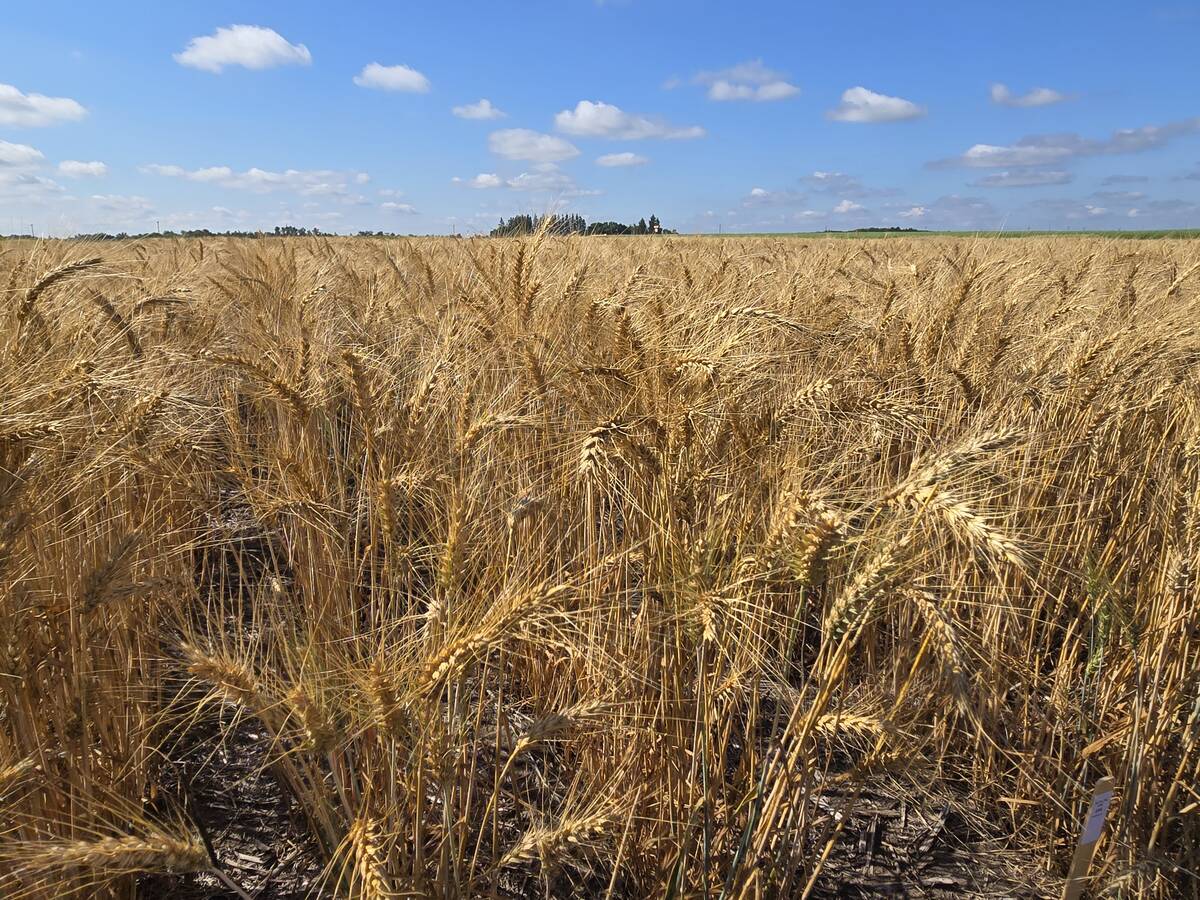Canola pioneer Keith Downey has a lengthy resume and an impressive list of accomplishments.
Heralded as the “father of canola,” he’s the breeder or co-breeder of 13 rapeseed/canola varieties, receiving no shortage of acclaim, including nods from the American Oil Chemists, Agricultural Institute of Canada and inductions into the Saskatchewan and Canadian Agricultural Halls of Fame.
On Jan. 11 he added “Jeopardy clue” to that list.
On that day, viewers of the long-running TV quiz show saw Downey’s name flash across the screen during the Final Jeopardy segment.
Read Also

Fall rye hits record high in Manitoba
Winter cereals 2025: More Manitoba fields grew fall rye in 2025 than ever before, but winter wheat slipped and, while spring stand survival was good, drought took its toll
The question — or, in this case, the answer — posed to contestants: “Keith Downey developed rapeseed into this cooking product, now a huge cash crop for farmers in Sask-atchewan.”
Downey was alerted to his cameo from a friend who saw the program during an earlier broadcast. He caught the show later in the day and his granddaughter grabbed a photo of the screen for posterity.
“I must say that being on Jeopardy created a lot more interest from a lot more sources than some of the other things that have happened to me,” said Downey.
A flurry of interest followed, as did calls from journalists, and for a day one of the scientists behind the development of canola 30 years earlier saw an unexpected boost in celebrity.
It’s a byproduct of the show that veteran Jeopardy writer Billy Wisse said isn’t uncommon.
Questions are researched and fact checked, but the internet allows the show’s writers and researchers to do so without ever making contact with the subject.
As a result, a group of writers in California can deliver quite the surprise to a retired scientist in Canada.
“Everyone has a story and a lot of times it has repercussions that you might not think of,” Wisse said.
“We do end up mentioning people on the air that probably would never have thought they would get their names on a quiz show.”
It began with a writer researching the origins of canola oil, a common household item with a curious but not widely known history. That’s when the writer made the connection to Canada.
“He decided to go ahead and mention Saskatchewan and why not mention the gentleman’s name as well?” said Wisse.
“As I recall, when the clue aired, the contestants didn’t quite manage to figure it out.… But hopefully the people watching enjoyed learning something about a product they’ve probably used and never really thought about that much.”
The clue drew the responses “what is cooking oil,” “what is vegetable oil,” and “what is grapeseed” from the three contestants.
“I think there probably were a lot of people who went and Googled Sask-atchewan to find out where in heaven’s name this place is and also canola to find out a little more,” said Downey.
“It was good advertising for Canada and Saskatchewan and canola.”
Downey’s research in the 1970s at Agriculture Canada’s research centre in Saskatoon contributed to the development of the oilseed, taking it from a small crop grown for industrial oil to one of the country’s biggest moneymakers, with millions of acres harvested and processed ann-ually, adding billions to the national economy.
“We bred better than we knew,” said Downey. “When we brought canola forward, it was about the same time as the nutritionist decided that saturated fatty acids were undesirable…. This was an additional plus that we weren’t really responsible for.”
While it was Downey under the Jeopardy spotlight, he was quick to give credit to his colleagues Burt Craig, Claire Youngs and Baldur Stefansson.
“Let’s hope that people take the time to really look up and get the full story,” said Downey.














